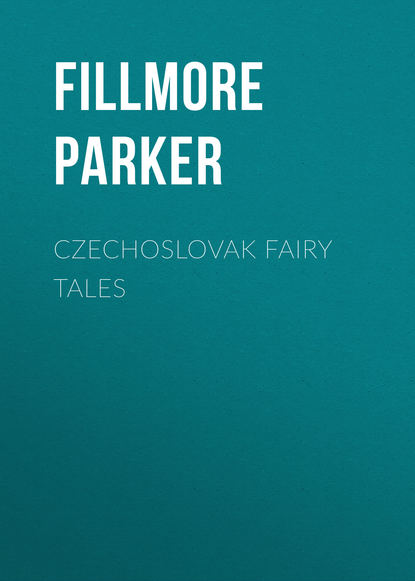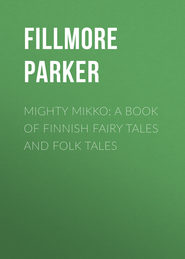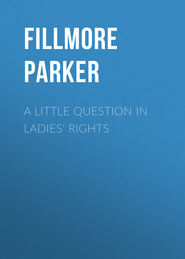По всем вопросам обращайтесь на: info@litportal.ru
(©) 2003-2024.
✖
Czechoslovak Fairy Tales
Настройки чтения
Размер шрифта
Высота строк
Поля
Bayaya rode straight at him and with one blow of his sword cut off three of his heads. The dragon writhed and enveloped Bayaya in flames and poisonous fumes. But the prince, undaunted, struck at him again and again until he had cut off all nine heads. The life that still remained in the loathsome body, the horse finished with his hoofs.
When the dragon had perished the prince turned and galloped back the way he had come.
Zdobena looked after him, wishing she might follow him to thank him for her deliverance. But she remembered her poor father sunk in grief at the castle and she felt it was her duty to hurry back to him as quickly as she could.
It would be impossible to describe in words the king’s joy when Zdobena appeared before him safe and uninjured. Her sisters embraced her and wondered for the first time whether a deliverer would rise up for them as well.
Bayaya capered happily about and assured them by signs that he was certain they, too, would be saved. Although the prospect of the morrow still terrified them, yet hope had come to them and once or twice Bayaya succeeded in making them laugh.
The next day Budinka was led out. As on the day before, the unknown knight appeared, this time wearing a white plume. He attacked the eighteen-headed dragon and, after valiant conflict, despatched him. Then before any one could reach him, he turned and rode away.
The princess returned to the castle, grieving that she had not been able to speak to the knight and express her gratitude.
“You, my sisters,” Slavena said, “were backward not to speak to him before he rode off. Tomorrow if he delivers me I shall kneel before him and not get up until he consents to return with me to the castle.”
Just then Bayaya began laughing and chuckling and Slavena asked him sharply what was the matter. He capered about and made her understand that he, too, wanted to see the knight.
On the third day Slavena was taken out to the Dragon Rock. This time the king also went. The heart of the poor girl quaked with terror when she thought that if the unknown knight failed to appear she would be handed over to the horrible monster.
A joyous shout from the people told her that the knight was coming. Then she saw him, a gallant figure in blue with a blue and white plume floating in the wind. As he had killed the first dragon, and the second dragon, so he killed the third although the struggle was longer and the little horse had much to do to stand up against the poisonous fumes.
Instantly the dragon was slain, Slavena and the king rushed up to the knight and begged him to return with them to the castle. He scarcely knew how to refuse, especially when Slavena, kneeling before him, grasped the edge of his tunic and looked up at him so bewitchingly that his heart melted and he was ready to do anything she asked.
But the little horse took matters into his own hands, reared up suddenly, and galloped off before the knight had time to dismount.
So Slavena, too, was unable to bring the knight back to the castle. The king and all the court were greatly disappointed but their disappointment was swallowed up in their joy that the princesses had been so miraculously saved.
Shortly after this another disaster threatened the king. A neighboring king of great power declared war against him. The king sent far and wide and summoned together all the nobles of the land. They came, and the king when he had laid before them his cause promised them the hands of his three beautiful daughters in return for their support. This was indeed an inducement and every young noble present swore his allegiance and hurried home to gather his forces.
Troops poured in from all sides and soon the king was ready to set forth.
He handed over the affairs of the castle to Bayaya and also intrusted to him the safety of the three princesses. Bayaya did his duty faithfully, looking after the castle and planning diversions for the princesses to keep them happy and cheerful.
Then one day he complained of feeling sick, but instead of consulting the court physician, he said he would go himself to the fields and hunt some herbs. The princesses laughed at his whim but let him go.
He hurried to the rock where his horse was stabled, knocked three times, and entered.
“You have come in good time,” the horse said. “The king’s forces are weakening and tomorrow will decide the battle. Put on the white suit, take your sword, and let us be off.”
Bayaya kissed his brave little horse and put on his white suit.
That night the king was awake planning the morrow’s battle and sending swift messengers to his daughters instructing them what to do in case the day went against him.
The next morning as the battle joined an unknown knight suddenly appeared among the king’s forces. He was all in white. He rode a little horse and he wielded a mighty sword.
He struck right and left among the enemy and he caused such havoc that the king’s forces were instantly heartened. Gathering around the white knight they fought so valiantly that soon the enemy broke and scattered and the king won a mighty victory.
The knight himself was slightly wounded on the foot. When the king saw this he jumped down from his horse, tore off a piece of his own cape, and bound up the wound. He begged the knight to dismount and come with him to a tent. But the knight, thanking him, refused, spurred his horse, and was gone.
The king nearly wept with disappointment that the unknown knight to whom he was under one more obligation had again ridden off without so much as leaving his name.
With great rejoicing the king’s forces marched home carrying vast stores of booty.
“Well, steward,” said the king to Bayaya, “how have the affairs of the household gone in my absence?”
Bayaya nodded that everything had gone well, but the princesses laughed at him and Slavena said:
“I must enter complaint against your steward, for he was disobedient. He said he was sick but he would not consult the court physician. He said he wanted to go himself and get some herbs. He went and he was gone two whole days and when he came back he was sicker than before.”
The king looked at Bayaya to see if he was still sick. Bayaya shook his head and capered about to show the king that he was all right.
When the princesses heard that the unknown knight had again appeared and saved the day they were unwilling to become at once the brides of any of the nobles, for they thought the knight might perhaps come demanding one of them.
Again the king was in a quandary. All the various nobles had helped him valiantly and the question now arose to what three of them would the princesses be awarded. After much thought the king hit upon a plan which he hoped would decide the matter to the satisfaction of them all. He called a meeting of the nobles and said:
“My dear comrades in arms, you remember that I promised the hands of my daughters to those of you who would support me in battle. All of you gave me valiant support. Each of you deserves the hand of one of my daughters. But, alas, I have only three daughters. To decide therefore which three of you my daughters shall marry I make this suggestion: let all of you stand in the garden in a row and let each of my daughters throw down a golden apple from a balcony. Then each princess must wed the man to whom her apple rolls. My lords, do you all agree to this?”
The nobles all agreed and the king sent for his daughters. The princesses, still thinking of the unknown knight, were not enthusiastic over this arrangement, but not to shame their father they, too, agreed.
So each of the girls, dressed in her loveliest, took a golden apple in her hand and went up to a balcony.
Below in the garden the nobles stood in a row. Bayaya, as though he were a spectator, took his place at the end of the line.
First Zdobena threw down her apple. It rolled straight to the feet of Bayaya but he turned quickly aside and it rolled on to a handsome youth who snatched it up with joy and stepped from the line.
Then Budinka threw her apple. It, too, rolled to Bayaya but he cleverly kicked it on so that it seemed to roll straight to the feet of a valiant lord who picked it up and then looked with happy eyes at his lovely bride.
Last Slavena threw her apple. This time Bayaya did not step aside but when the apple rolled to him he stooped and picked it up. Then he ran to the balcony, knelt before the princess, and kissed her hand.
Slavena snatched away her hand and ran to her chamber, where she wept bitterly to think she would have to marry Bayaya instead of the unknown knight.
The king was much disappointed and the nobles murmured. But what was done was done, and could not be undone.
That night there was a great feast but Slavena remained in her chamber refusing to appear among the guests.
It was moonlight and from the rock in the field the little horse carried his master for the last time. When they reached the castle Bayaya dismounted. Then he kissed his faithful friend farewell, and the little horse vanished.
Slavena still sat in her chamber, sad and unhappy. When a maidservant opened the door and said that Bayaya wished to speak to her, the princess hid her face in the pillows.
Presently some one took her by the hand and when she raised her head she saw standing before her the beautiful knight of her dreams.
“Are you angry with your bridegroom that you hide from him?” he asked.
“Why do you ask me that?” Slavena whispered. “You are not my bridegroom. Bayaya is my bridegroom.”
“I am Bayaya. I am the dumb youth who wove you garlands. I am the knight who saved you and your sisters from death and who helped your father in battle. See, here is the piece of your father’s cape with which he bound up my wounded foot.”
That this was so was joy indeed to Slavena. She led the white knight into the banquet hall and presented him to the king as her bridegroom. When all had been explained, the king rejoiced, the guests marveled, and Zdobena and Budinka looked sideways at each other with little gasps of envy.










